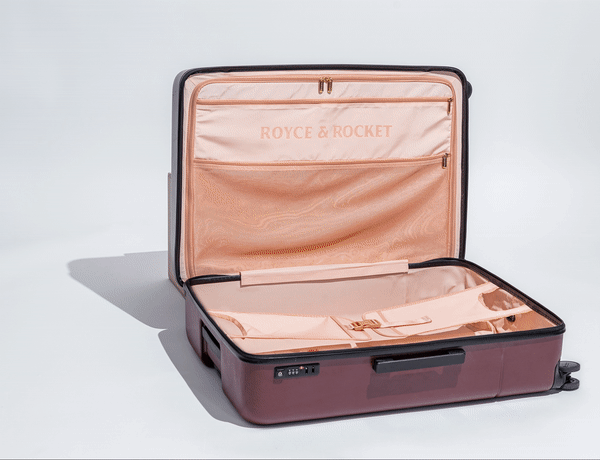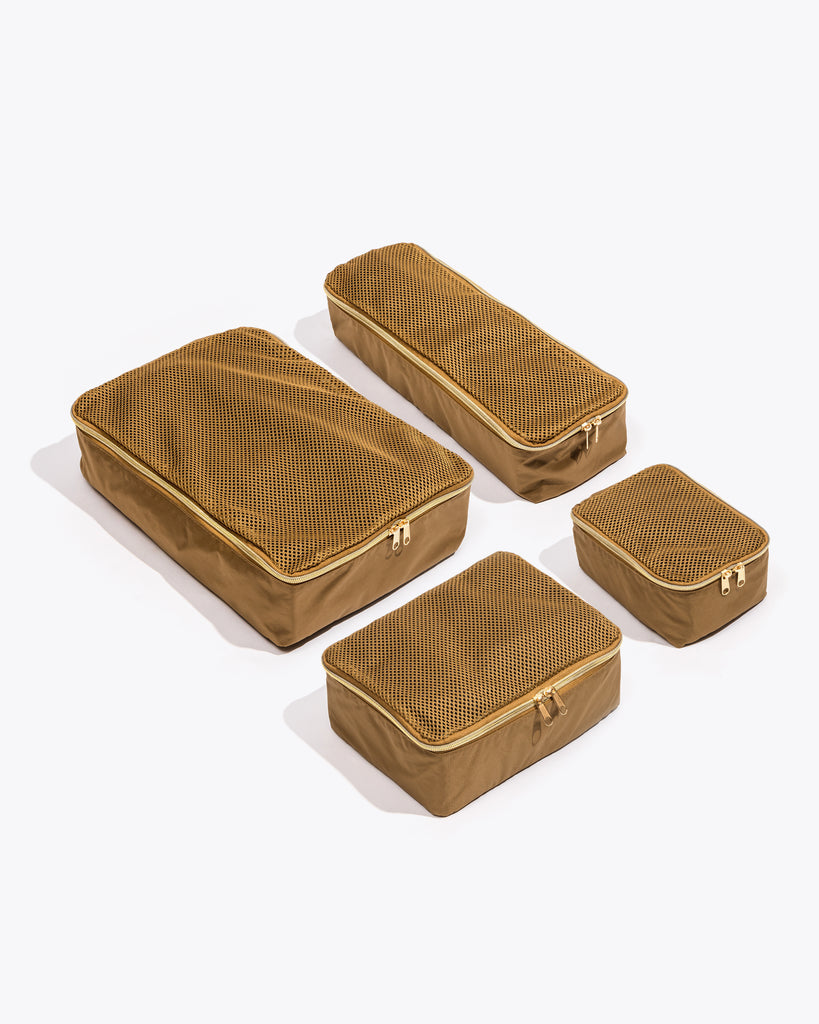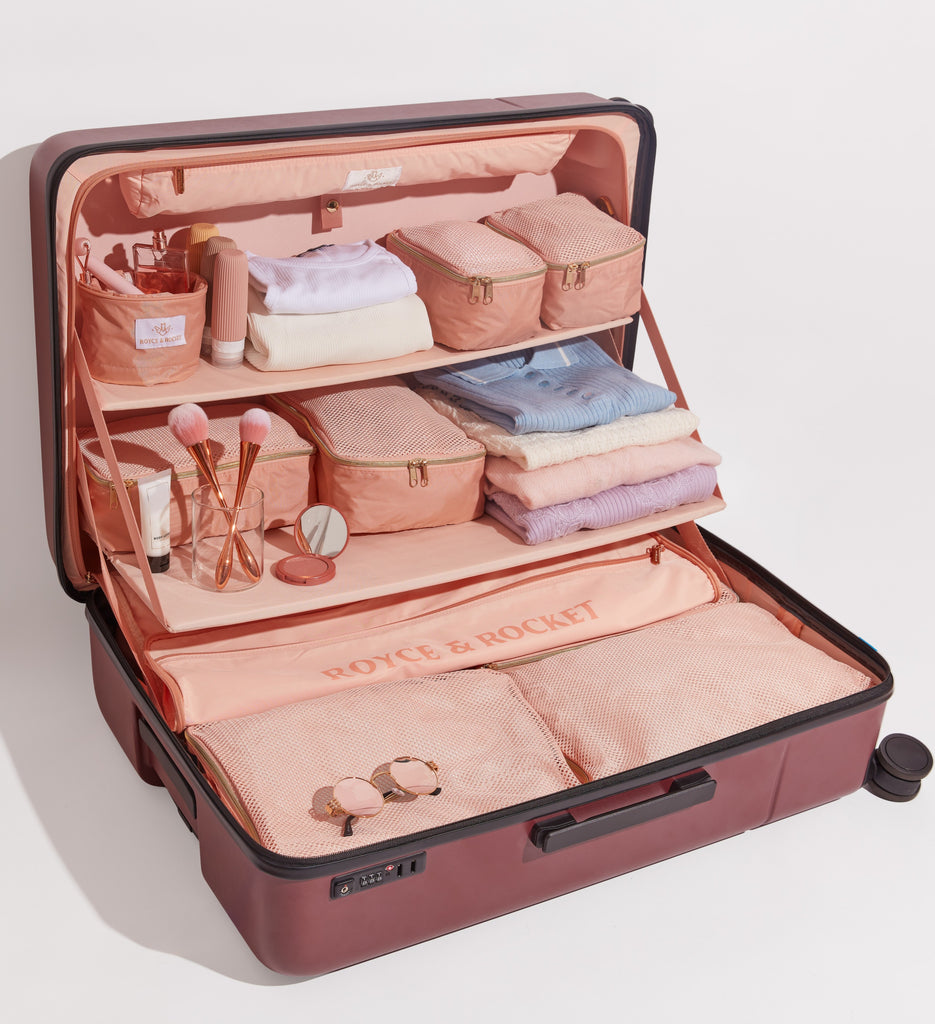A semester abroad is undoubtedly one of the most exciting times in any student's life. But with all that excitement comes a host of nerves and anxiety. Especially when it comes to packing.
How does one plan for a trip that big? What should you pack - and what should you leave behind? We'll answer all of that and more below!
1. Pack Light
When you’re staring at your room looking at how to pack your life in just a few bags, everything can feel like an essential item. After all, how will you live without your Apple Watch? Or your trusty pair of sunglasses? And you’ve got to take your backup leather jacket.
The truth is, the lighter you pack, the easier your trip will be.
Besides making your travel more stress-free (say hello to weight limits), you’ll also want to keep space in your suitcase for all of those nifty shot glasses, bracelets, sculptures, or whatever other commemorative items you want to bring back home.
And chances are, you’ll be so consumed by your studies and experiences that the items you leave behind probably won’t cross your mind.
2. Consider Essentials
Even though it’s important to pack light, there are essentials that every traveler must bring with them.
Make sure to bring items like:
- Passport (make photocopies and store photocopies away from the original)
- Medications and prescriptions
- Local currency
- Power converters
- Power adaptors
- Shower flip flops
- Toiletries
- Sunscreen
- Padlock
- A small bag or backpack (for day trips)
- Tissues/toilet paper
- Reusable water bottle
It's also helpful to make a list of your own personal essentials that you cannot live without prior to packing. Keep a list handy and write down every item that you use in your day-to-day life that you cannot leave behind. Make sure to keep this list going for a few weeks, if not a couple months, to ensure you remember everything.
3. Electronics
Each country has its own specific electric standard. For example, European countries have electric standards of 220- 240 volt, 50-cycle while the United States uses a 110-120 volt, 60-cycle system.
To make matters more confusing, each country usually has different plug configurations. Because of this, it's important to research your country’s electricity restrictions since using the wrong cord (even if the configuration is correct), may short out your device, which can damage or even break your electronics.
If you’re traveling to a large city with access to electronics, you’ll have a bit more leeway as you will probably be able to find adapters more easily than you would if you are traveling somewhere more remote. Therefore, it’s important to work out all of these details before you leave - especially if you’re traveling to a smaller country or city.
4. Clothes
Clothes are perhaps the item that is most challenging to pack for. After all, you need to be prepared for all sorts of activities, events, weather, and fluctuating temperatures.
Learning more about your host home will help you gain insight to what you should pack and how much. If your dorm, apartment, or home doesn’t have access to laundry in-house, you should pack much more in underwear, socks, and pattern-less shirts (as they’re easier to reuse) so that you can go longer in between loads of laundry.
Additionally, try to keep shoes at a minimum. Most students only pack two or three pairs as shoes take up so much space and, generally, you’ll only need a couple of pairs anyway.
5. Consider The Weather
It goes without saying that you should be packing for the climate of your host country. Make sure to do proper research so you know what to wear and leave behind those items that you want to wear but know will most likely never see the light of day.
Be realistic when packing and always prepare for the unexpected. Weather is unpredictable and you should expect to see a whole spectrum of temperature fluctuation.
Layers are key when packing. Barring your traveling to a country with extreme climates like Russia or Brazil, you’ll want to bring a lot of light layers.
6. Consider The Culture
When choosing clothes, make sure to do proper research on the country’s customs and culture.
If you’re traveling to a conservative country, consider wearing more conservative clothes.
Fitting into your country’s culture will not only help you have a more genuine, stress-free experience, but you’d be surprised by how clothing can impact your experience.
For example, some places don’t allow people to enter if they’re not dressed properly, like a Church or a restaurant. Save yourself some embarrassment and research your country’s cultures ahead of time.
7. Use Packing Cubes!
It can be hard to stay organized on the road. That’s why so many students use travel organizers like packing cubes to live out of their bags easier than ever.
If you’re new to packing cubes, think of these handy cubes as makeshift drawers to go in your luggage. When you use packing cubes, you can expertly separate and organize all of your belongings so that you’re not forced to pack everything into one jumbled mess.
There are a wide variety of packing cubes available. You can get compression cubes (that squeeze air out to provide even more space), more firm and structured packing cubes, or even cubes that go inside a backpack!
Whatever you choose, make sure you find the packing cubes that are the right fit for your travel goals and lifestyle.
If you want to keep your life organized even while you live out of your suitcase, consider using tools like packing cubes to always keep your life on track.
8. Consider Shelved Luggage
Okay, so you know what to pack, but do you know what you’re going to pack in? Even though it may seem like an afterthought, your luggage can make or break your trip. When you fly all over the world, you need durable, large luggage that you can depend on.
Another game changer? Shelved luggage. Using luggage with shelves is the perfect way to live out of a suitcase. If you’re going to be living in a smaller space with limited drawers, consider the Royce and Rocket suitcase. With luggage with shelves, you can transform your trunk luggage into an on-the-go closet for better convenience, accessibility, and organization.
Never compromise on space and organization again when you choose luggage with shelves.
9. Prepare To Be Unprepared
No matter how much you research your country, you’ll never truly understand what it’s like to live there until you actually do live there. As a result, you’re bound to miss some things.
If you get all the way to your destination and realize that you didn’t think to bring that one jacket or perfect pair of sunglasses, don’t beat yourself up! More than likely you can purchase whatever you need at a local store or market. Make sure to bring extra spending money to buy anything you forgot at home or didn’t think to pack.
Before You Go
Packing for a study abroad trip can be more than a little overwhelming. But if you stay organized, do your research, and take it one step at a time, chances are you’ll surprise yourself with how easily you conquer this challenge.
To make your trip more organized than ever before, consider utilizing handy packing tools like packing cubes and travel organizers.





